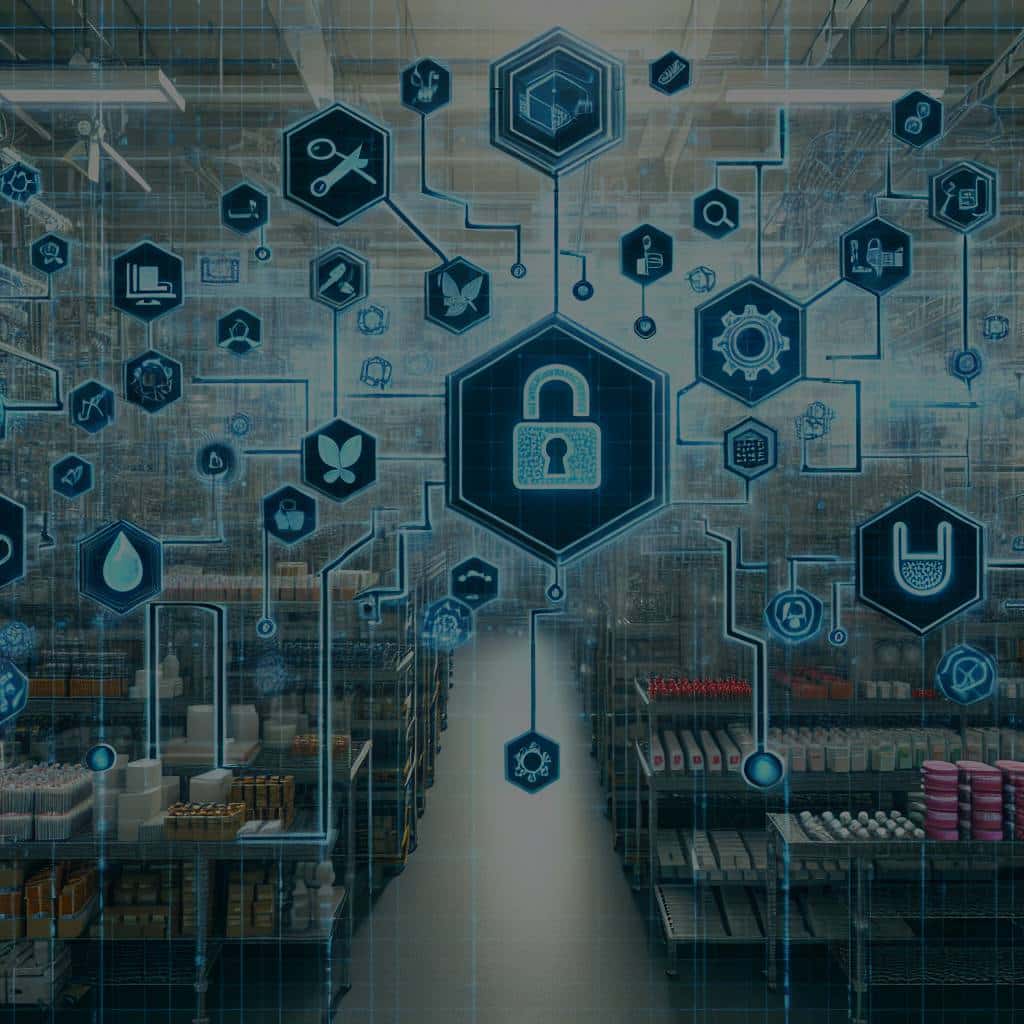In an industry that is critical to human health and wellness, pharmaceutical supply chains have always wrestled with the challenges of ensuring product safety and traceability. However, with the emergence of blockchain technology, the pharmaceutical industry is undergoing a significant transformation. This article explores how blockchain is revolutionizing the pharma industry by improving traceability and transparency in the supply chain.
Blockchain: An Overview
The concept of blockchain technology is relatively easy to understand. It’s an incorruptible digital ledger of economic transactions that can be programmed to record virtually anything of value. It’s based on a network of computers, where each block contains a cryptographic hash of the previous block, a timestamp, and transaction data. Its decentralized and transparent nature makes it a perfect fit for industries where traceability and transparency are crucial. One such industry is pharmaceuticals.
Also to read : Can AI-Enhanced Gene Sequencing Accelerate Personalized Cancer Treatment?
The pharmaceutical industry is a sensitive and complex arena where the slightest error can have significant consequences. That’s why incorporating blockchain technology in this area is not just beneficial, but necessary. With blockchain, traceability of medical products can be improved, counterfeit drugs can be eliminated, and patient trust can be enhanced.
Enhancing Traceability with Blockchain Technology
The pharmaceutical supply chain is a complex web of manufacturers, distributors, pharmacies, and healthcare providers. Ensuring the traceability of drugs across this chain is a daunting task, but it’s critical for patient safety and health.
Also to read : How Is AI Being Used to Optimize Electric Grid Distribution and Prevent Outages?
Blockchain technology provides a solution for enhanced traceability in the supply chain. Every time a drug moves from one point to another in the chain, an immutable record is created on the blockchain. This data is visible to all participants and can’t be altered, ensuring a high level of transparency.
The traceability offered by blockchain is not just about knowing where a drug is at any given time. It’s also about understanding its journey from the manufacturer to the patient. This includes information about the ingredients used, the conditions under which it was transported, and its storage conditions.
Fighting Counterfeit Drugs with Blockchain
Counterfeit drugs are a significant challenge in the pharmaceutical industry. They not only lead to lost revenue but also pose serious health risks to patients. A WHO report revealed that approximately 10% of drugs worldwide are counterfeit, and in some countries, this figure can go up to 30%.
Blockchain technology can be a potent tool to combat the menace of counterfeit drugs. Given its transparency and traceability, it becomes nearly impossible for counterfeit drugs to enter the supply chain unnoticed. Every drug can be traced back to its origin, ensuring that any discrepancies or anomalies are quickly identified and dealt with.
Moreover, smart contracts – a feature of blockchain technology – can be leveraged to automate the verification process. A smart contract is a self-executing contract with the terms of the agreement between buyer and seller directly written into lines of code. By using smart contracts, parties involved in the supply chain can ensure that only authentic drugs are allowed to pass through.
Improving Patient Trust with Blockchain
Patient trust is a cornerstone of the pharmaceutical industry. Patients need to be confident that the drugs they receive are safe, effective, and genuine. Blockchain technology, with its transparency and traceability, can play a pivotal role in building this trust.
For instance, patients can use blockchain to verify the authenticity of their medication. By scanning a QR code on the drug packaging, they can access the entire history of the drug, right from its manufacturing process to its journey through the supply chain. This level of transparency can significantly boost patient trust in the pharma industry.
Furthermore, blockchain can also improve patient data management. The technology can create a secure, immutable record of patient data, ensuring it’s only accessible to authorized individuals. This can greatly enhance patient privacy and confidentiality, further increasing their trust in the system.
Streamlining Supply Chain Management with Blockchain
Managing the pharmaceutical supply chain is a complex job involving numerous stakeholders, processes, and regulations. However, blockchain can significantly simplify this task by offering a single source of truth.
With a blockchain-based supply chain, all transactions and movements of drugs are recorded in real-time on a single, immutable ledger. This allows for more straightforward tracking and monitoring, leading to efficient inventory management.
Moreover, blockchain’s smart contracts can automate many processes in the supply chain, from order placements to payments, reducing inefficiencies and errors. It also allows for easier compliance with regulations as the necessary data is readily available and verifiable.
In summary, blockchain is more than just a buzzword in the pharmaceutical industry. It’s a game-changing technology that’s set to revolutionize the industry by enhancing traceability, combating counterfeit drugs, improving patient trust, and streamlining supply chain management. With these potential benefits, it’s clear that the future of the pharmaceutical supply chain is blockchained.
Adopting Blockchain Technology: Challenges and Opportunities
Despite the apparent benefits, adopting blockchain technology in the pharmaceutical industry also presents a few challenges. One of these is the issue of scalability. As the size of the blockchain increases, so does the amount of computing power required to maintain it. This can be a significant obstacle for smaller companies or those in regions with less robust IT infrastructure.
Lack of standardization is another challenge. Different blockchain platforms may use different protocols and standards, which can complicate their integration into existing systems. Moreover, the legal and regulatory framework for blockchain is still developing, which can create uncertainty for companies considering adopting this technology.
However, these challenges also present opportunities. The scalability issue, for example, has led to the development of more efficient blockchain platforms and the exploration of off-chain solutions. Similarly, the lack of standardization can drive innovation as companies develop their own blockchain solutions tailored to their specific needs.
The regulatory uncertainty can also be seen as an opportunity for proactive companies to engage with policy makers and regulators. By doing so, they can help shape the future regulatory landscape in a way that supports the responsible and effective use of blockchain technology in the pharmaceutical industry.
Conclusion: Blockchain Revolution in the Pharmaceutical Industry
Given the potential benefits and despite the challenges, it is clear that blockchain technology has a crucial role to play in the future of the pharmaceutical supply chain. From improving transparency and traceability to combating counterfeit drugs and enhancing patient trust, the applications of blockchain in this industry are far-reaching and transformative.
As with any new technology, the journey to widespread adoption will not be without hurdles. However, the pharmaceutical industry, with its critical role in ensuring human health and wellness, cannot afford to ignore this game-changing technology. By proactively addressing the challenges and leveraging the opportunities, industry players can lead the way in harnessing the power of blockchain.
In a world where data and transparency are increasingly important, blockchain offers a powerful tool for the pharmaceutical industry to improve its operations, build trust with patients, and ultimately, deliver better health outcomes. The power of blockchain lies not just in the technology itself, but in its potential to transform the way the pharmaceutical industry works. The blockchain revolution in the pharmaceutical supply chain is just beginning, and its impact will be far-reaching and long-lasting.






